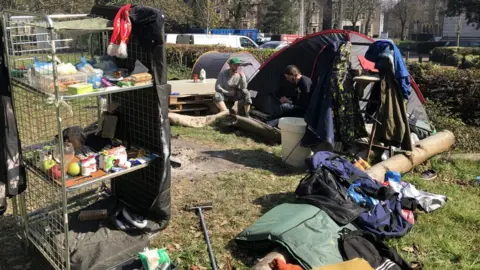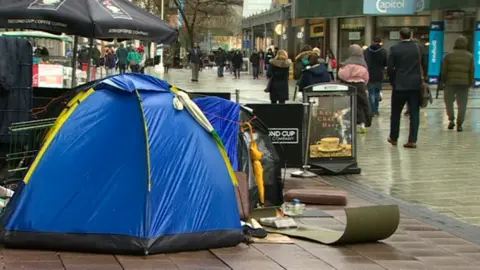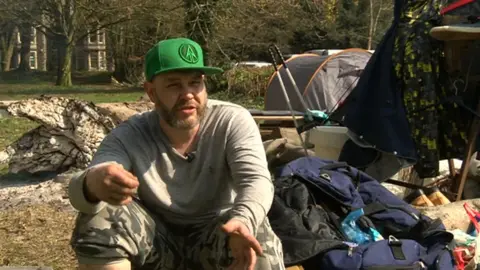Cardiff homeless tents 'encampment' clearance defended
 BBC
BBCCardiff Council has defended its operation to clear tents used by homeless people in the city centre.
Police helped remove tents from green space in Cathays Park on Thursday after occupants were given 24 hours to leave.
The council cited concerns about anti-social behaviour, saying it was working hard to help people find accommodation.
Lynda Thorne, the cabinet member for housing, has said the authority was only removing tents that had been left empty for at least 24 hours.
A total of 19 abandoned tents has been removed from the city centre over the past month, leaving just 15.
The authority said many of the tents belonged to people who had found accommodation, and insisted it was not removing occupied tents.
Last week, Ms Thorne said seven tents occupying green spaces were proving "the hardest to remove due to difficulties with engaging with the occupiers".

A council spokeswoman defended the clearing of tents from parkland off Museum Avenue - metres from Cardiff City Hall - in light of anti-social behaviour as well as concerns for the welfare of the people involved.
"Our outreach team have made numerous attempts to engage with tent occupants there, to provide information and to help them access accommodation and support services," she told the Local Democracy Reporting Service.
"However, some are refusing to engage with us.
"As the encampment is in breach of a byelaw prohibiting tents being erected in Cardiff parks, a notice to leave was issued to the tents on Wednesday giving individuals 24 hours to remove the tents, before council and police officers attended to remove them."

The authority said since January it had helped 40 rough sleepers find accommodation, of whom 14 had been occupying tents.
In January, Conservative councillor Kathryn Kelloway was temporarily suspended by her group and branded "inhuman" for calling on the council's Labour leaders to "tear down these tents".
Jason, 38, one of the homeless people near the museum, said he left prison in November after serving time for shoplifting and defended his decision to sleep in a tent.
"I don't want to live in any of these hostels - I want my own front door," he told BBC Wales.